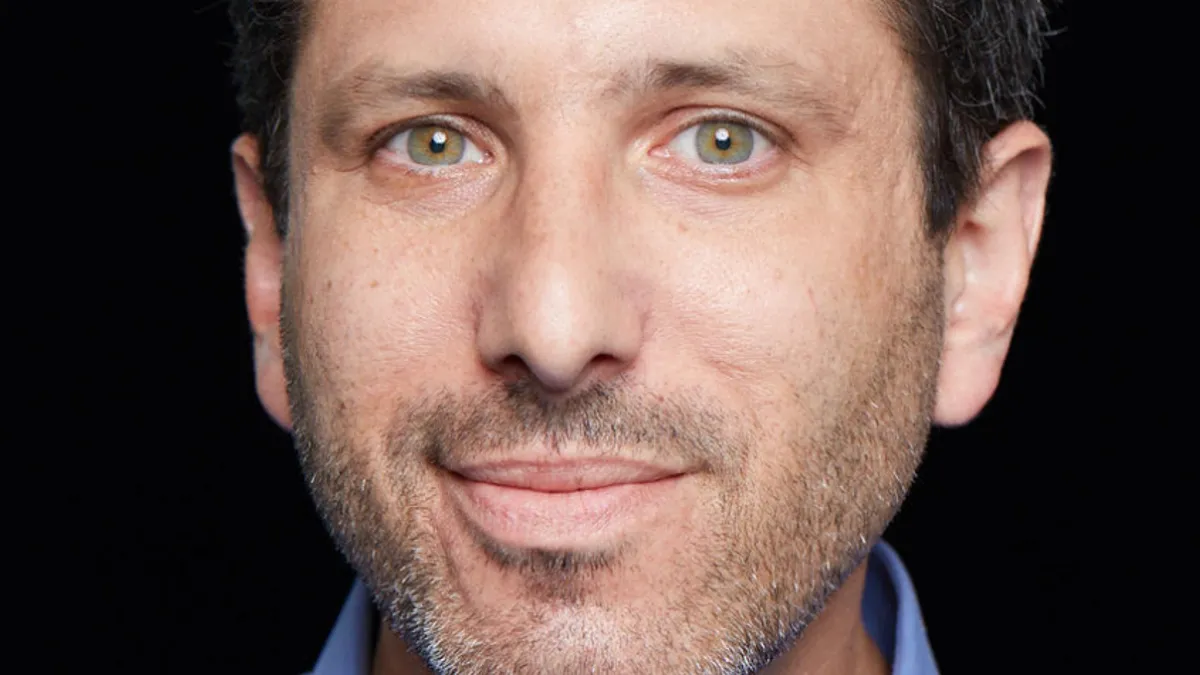One day in 2006, Red Jacket awardee and PharmaVoice100 Craig Lipset could not catch his breath. He was young, healthy, and his wife had just given birth to their baby girl. What happened next — a diagnosis of a rare condition — was the experience that led him to become one of the foremost visionary leaders transforming the way clinical trials and patient data are used today.
Often noted for his relentless passion, Lipset seeks to revolutionize the role patients play in clinical research. The ultimate goal: to get patients the tools they need to share their health data and become not only a part of the process, but also part of the solution for developing new medical breakthroughs.
Today, patients have unprecedented access to their data. Nine out of 10 patients are willing to share their data if the practice can ensure privacy and security and if the data will be used to support medical research. Since the human body is the world’s richest data base, this is the way of the future. Patient data has become the fuel for research, and Lipset is the catalyst for getting more patients involved in clinical research and medicine development.
Lipset’s resume is full of the opportunities he has grabbed in order to bring his vision to reality. While he certainly has all the credentials to be leading the charge to more patient-involved trials, what sets him apart is his passion. We asked him why he was so dedicated to this space, and his response was personal.
“The year 2006 was noteworthy for me. My second child was born, and I found myself breathless — both figuratively and literally,” Lipset says.
Working in biotech in Cambridge, Mass., he had signed up for the Chase Corporate Challenge, a fairly easy running event in the Boston area.
“I was surprised how out of breath I became, and only then started to realize how I stopped taking the stairs at work and had shifted to an elevator every day. Soon after I had a cough that I could not shake, and...you probably get where this story is going,” he says.
After diagnostic tests, imaging studies and a pair of biopsies, he was diagnosed with a relatively rare pulmonary condition. He began to conduct his own research and track his medical data to find out what went wrong.
“Being a bit of a nerd, I became a data hoarder, building libraries of every scrap of my medical data and plotting/tracking details looking for correlations,” Lipset says. “Over coffee with friend Dave DeBronkart, he ‘diagnosed’ me as an ePatient, and as I got closer to the ePatient movement I started to think more about the intersection of ePatients and clinical trials. What will studies look like if more activated, engaged, data-enabled patients begin to participate?”
It was about that time that Lipset was hired by Pfizer, and was able to create a role for himself that involved room to be creative. He took his epiphany about the intersection of patients and clinical trials and pitched what would become the first fully remote decentralized trial (called the REMOTE study).
“The Pfizer REMOTE study was an amazing experience,” Lipset says. “We did a lot right and plenty we did wrong. Even though we wound that study down early, I made a point of sharing every detail of what worked and did not with the hope that others in the research community would find inspiration.”
In the years between the REMOTE study and the COVID-19 pandemic, the community did just that — with tens of millions of dollars invested, new companies formed, CROs and others developing capabilities and pharma running experiments.
Lipset left Pfizer three years ago, but the industry wanted more answers from him. He started to receive a number of inbound requests for help in the remote trial area from other pharma companies. When the pandemic struck, those requests for help shot through the roof.
As a result, Lipset became an evangelist for patient involvement, as well as virtual trials. He founded his own advisory service, Clinical Innovation Partners, and serves as co-chair on the board of directors for the Decentralized Trials & Research Alliance (DTRA). He also sits on the board for the Foundation for Sarcoidosis Research and the MedStar Health Research Institute.
“At the time during COVID I had a document tracking different solution providers that could help study teams; that became a Google Doc and ultimately a website (coronatrials.com). Keeping that site up became a burden I couldn’t sustain, but the demand for help was loud and clear,” he says. “I am hoping DTRA is now helping to fill that gap.”
DTRA was formed in 2020 with more than 70 founding members from pharma companies and their technology and service partners. The group enables collaboration of stakeholders to accelerate the adoption of patient-focused, decentralized clinical trials and research within life sciences and healthcare through education and research. The vision is to make research participation accessible to everyone, enabled by the consistent, widespread adoption of appropriate decentralized research methods.
One year in, DTRA has defined goals and initiatives,while building the world’s largest community of leaders in decentralized research, which has since triggered innovative business-to-business collaborations to improve solution delivery and experience for study teams, sites and participants. With over 130 organizations as members and nearly 300 experts collaborating, DTRA is ideally positioned to help make decentralized trials sustainable beyond the pandemic and scalable for global research.
Sign up for the newsletter for continuing coverage of DTRA’s work, as well as the challenges and innovations the industry is facing in the DCT space.



















